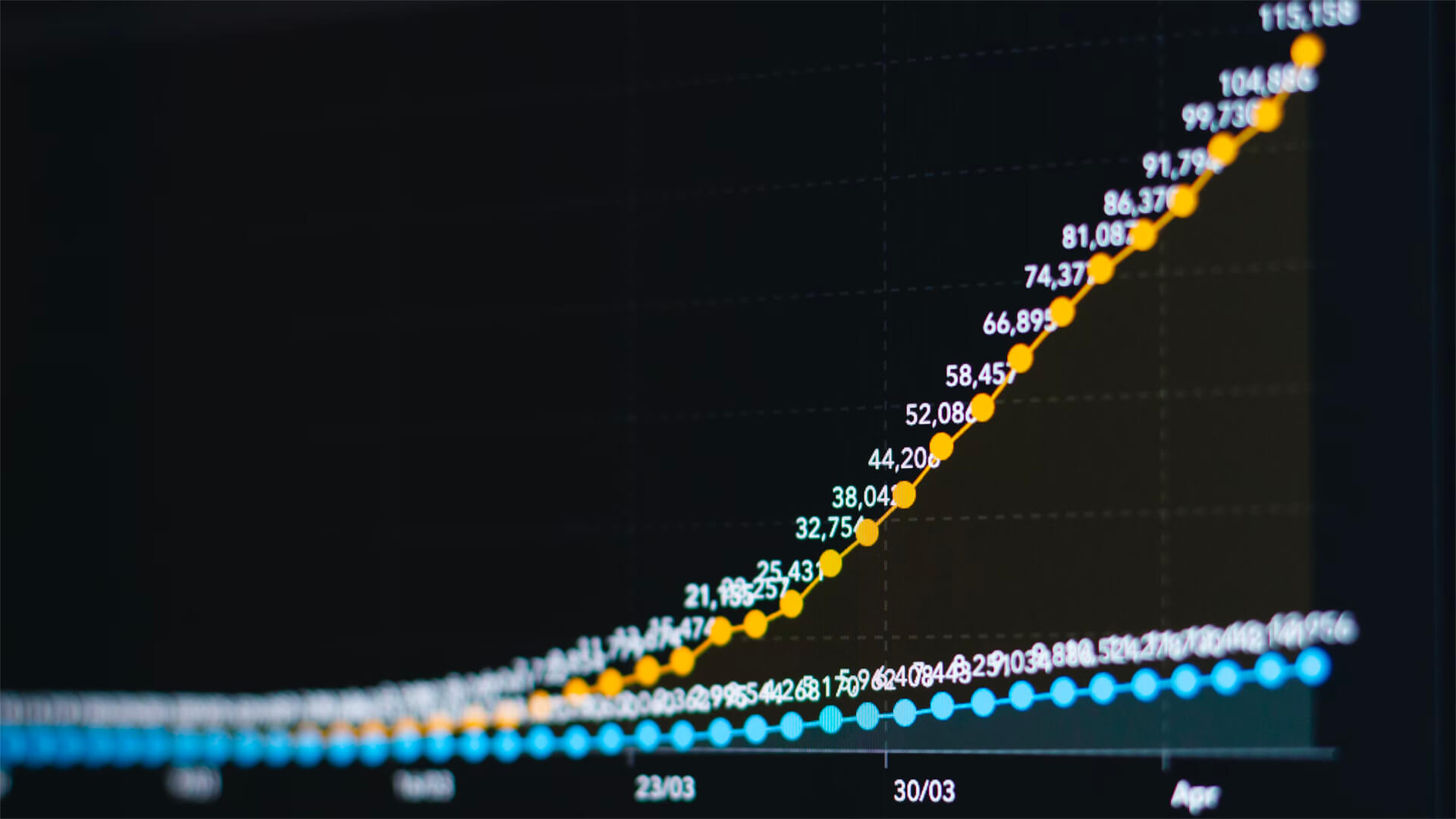To my fellow nerds reading along…this is your trigger warning…today we’re talking about BAD DATA. Sorry for the dramatics, but I’m sure many of you share my frustration when you can’t find the correct numbers for that forecast you’re working on or, even worse, the data you used in your model is falsified.
Unfortunately for us, this problem is only going to get worse. We know that the numbers coming out of Russia and China haven’t been “trustworthy” for years, but at least we could check most of it. At least now we don’t have to worry about data manipulation because both countries decided they wouldn’t collect or report it…
The increasing struggles of data reporting aren’t isolated to autocracies either. As the global trading system breaks down, most of the world will be hit with paralyzing inflation and trying to track it would be a fool’s errand. Until the gaping vulnerabilities left in the global trade system are patched, this will continue raging on.
Some countries will fare better than others, but no one is getting off scot-free. The modern world’s economic model is crumbling, and someone will have to figure out what we all do next.
Prefer to read the transcript of the video? Click here
Here at Zeihan On Geopolitics we select a single charity to sponsor. We have two criteria:
First, we look across the world and use our skill sets to identify where the needs are most acute. Second, we look for an institution with preexisting networks for both materials gathering and aid distribution. That way we know every cent of our donation is not simply going directly to where help is needed most, but our donations serve as a force multiplier for a system already in existence. Then we give what we can.
Today, our chosen charity is a group called Medshare, which provides emergency medical services to communities in need, with a very heavy emphasis on locations facing acute crises. Medshare operates right in the thick of it. Until future notice, every cent we earn from every book we sell in every format through every retailer is going to Medshare’s Ukraine fund.
And then there’s you.
Our newsletters and videologues are not only free, they will always be free. We also will never share your contact information with anyone. All we ask is that if you find one of our releases in any way useful, that you make a donation to Medshare. Over one third of Ukraine’s pre-war population has either been forced from their homes, kidnapped and shipped to Russia, or is trying to survive in occupied lands. This is our way to help who we can. Please, join us.
CLICK HERE TO SUPPORT MEDSHARE’S UKRAINE FUND
CLICK HERE TO SUPPORT MEDSHARE’S EFFORTS GLOBALLY
TRANSCIPT
Hey everybody. Peter Zeihan here coming to you from breezy, chilly California. And today we’re going to talk about statistics. Yes, yes, yes, I know, but it’s a lot better than it sounds. So I can’t do anything that I can do with analysis, much less forecast without decent data. And in some countries, that’s just more difficult to do than others. I’m not talking here about like bureaucratic interfaces or anything. I’m talking about just outright lies. So the two countries that have always been a bit of a black hole when it comes to the data are China and Russia.
In the case of China, the lies are primarily of choice. So you’ve got individual local leaders who are pumping up their own numbers to get more money from the federal government or in order to curry favor. So if the government says we want 6% growth, they’ll get six and a half. But some of it is just outright greed. The point where the Chinese system admits that you’re a person and starts to count you is when you enroll for kindergarten. Basically. So local governments have bumped up the number of people who have enrolled in order to get more cash. You play that forward for 40 years. The Chinese are now admitting that they’ve overcounted their population by in excess of 100 million people. And this is a big part of why China today is now in terminal economic decline. They just don’t have the people anymore. And they didn’t see it coming because the numbers told them otherwise.
In the case of Russia, it’s more a classic one-upmanship. There’s a general belief among Russian bureaucrats that they have to be better than the United States, even if they have to completely fabricate everything. So my personal favorite statistic out of Russia is that the Russians see that roughly one fifth of American agricultural land is irrigated. So in Russia, 25% is irrigated because 25% is more than 20%. That makes us better than you, which is, of course, you know, dumb, because if you’re irrigating land, that means you have to pay for it. And it’s usually not as efficient anyway. This has always been a challenge. We normally deal with this by evaluating counterparty. So if the Chinese say export some product, what’s called electronics to other countries, then you look at the import data for those other countries and you use that to back up to estimate how much came out of China. Same with the Russians.
What we’re seeing now with the Ukraine war and the onset of sanctions at volume is that the Russians are no longer lying about their data. They’re just not reporting it at all. And in the case of China, they’re not just lying about the data. They’re in many cases not collecting it. So a good example of that very, very recent just the last few weeks is with COVID. Now, Chinese data on COVID has always been nudge, wink, questionable, but they just stopped collecting it all after their opening. And you can kind of see why. I mean, let’s assume for the moment that the anti-vaxxers and the conspiracy theorists among us in the United States have actually been right all along. And COVID is no more dangerous to you than the common cold. Well, if that is true, China still lost a million people in the last several weeks as COVID spread through the population for the first time. It’s probably almost certainly sickness, acutely worse. And if the Chinese don’t collect the data and you have an information closed society, then no one knows. But I don’t want to just pick on the autocracies out there because the whole world is going to have a problem with data moving forward.
A couple of things. First, if you’re talking about a breakdown of the global trading system, we are going to have spasms in inflation as some products get produced in some zones but can’t get to others for assembly or raw commodities can be produced somewhere but can’t get shipped everywhere. Every part of the world is going to have different inflationary, deflationary and disinflationary trends, different from not just product to product, but component to component. And keeping track of that, much less putting it into an index is going to be a fool’s errand. We’re just going to feel the term of product shortages across the entire system. And until you can home shore or nearshore or friend shore, in that order, the component production themselves, the material processing itself, it’s not going to go away because it’s going to be vulnerable to security interruptions.
Second, most of our economic laws and rules and understanding are rooted in the idea that the economy gets a little bit bigger every year, not necessarily from technological advancement or economic growth classically, but simply from populations expanding. If you have more people every year, you have a little bit more consumption every year. You have a little bit bigger economic pie every year. Only that’s no longer true. In the aftermath of World War Two, the whole world started to industrialize, which is another way of saying the entire world started to urbanize. And as you move from the farm and into town, you have fewer kids until you get to modern day, say, China, where in the cities you’re averaging now less than one person per woman for her lifetime.
After 75 years of this process, we are now well past the point that the advanced countries are repopulating. China is on that list and over the course of the next 10 to 20 years, a lot of the advanced industrial world places like Korea are going to follow suit, which means that the pie is not getting bigger, which means that the tools we’ve developed, the theories we’ve developed, the monetary policy that we’ve developed is no longer appropriate for the world that we’re in. It is going to take us years, if not decades, to come up with a replacement system and replacement rules and replacement understandings and theories and especially policy tools to adapt to this. North America gets a bit of a pass. First of all, the Mexicans have the healthiest demography, not just in the rich world, but in their own peer class, better than India, better than Brazil, better than Turkey and the United States. We have one of the highest birth rates in the world among the rich countries and now higher than many advanced developing countries as well. And at current rates of aging, we will actually be younger than the Brazilians in the mid-twenty forties and younger than the Indonesians around 2050. So we’ve got time. Canada doesn’t have that kind of time, but Canada has gotten clever and has a cheat code and basically has embraced immigration as a national identity issue and so they’ve been able to import a huge number of people in their twenties and their early thirties, in a way that they haven’t done before. And that’s bought them time by importing an entire generation. That means North America is at least partially resistant to these trends, and the countries of North America are not going to have to be the ones to pioneer a fundamentally different economic model simply to preserve their societies. We can wait, we can watch, we can learn.
Anyway, that’s it for me. I’ll see you guys next time.








